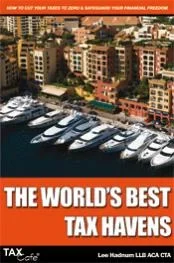So which tax haven can we add to the list? I have been considering what other offshore jurisdiction may be useful for my offshore business structuring.
So far I can see that the following offshore jurisdictions are under the term tax haven:
But according to the many discussion around I have learned there are many more, please input here.
For those who do not know what a tax haven is I put a link before the list above, I would also be interested in knowing of what the best and legal way is for tax avoidance, makes sense right ? Tax avoidance and tax evasion - Wikipedia, the free encyclopedia
Tax avoidance and tax evasion - Wikipedia, the free encyclopedia
Tax Havens are a legal item to use in order to reduce tax, but is it also allowed to be exempted from tax if you don't live the same place more than 6 months in a row?
So far I can see that the following offshore jurisdictions are under the term tax haven:
- Belize
- BVI
- Bermuda
- St.Kits
- Seychelles
- Panama
- Andora
- Curacao
- Uruguay
- Jersey
But according to the many discussion around I have learned there are many more, please input here.
For those who do not know what a tax haven is I put a link before the list above, I would also be interested in knowing of what the best and legal way is for tax avoidance, makes sense right ?
Tax Havens are a legal item to use in order to reduce tax, but is it also allowed to be exempted from tax if you don't live the same place more than 6 months in a row?


